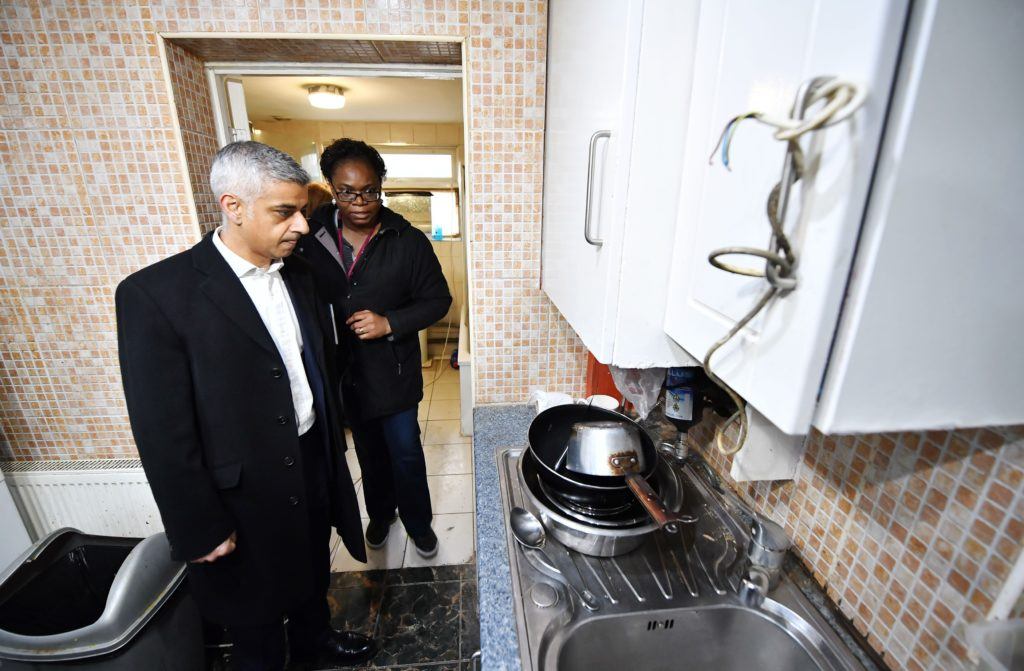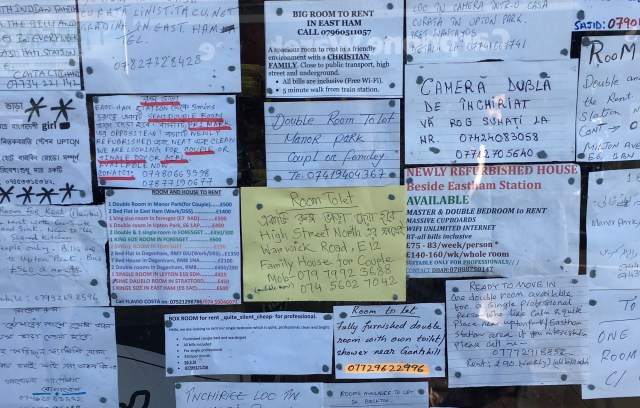
This is part of our week long series on the housing crisis: “Home Truths”.
Britons are often accused of fetishising home ownership. Yet the number of people living in the rented sector in Britain has risen precipitously in recent years. According to Knight Frank, by 2021 it is estimated that a quarter of us will be living in privately rented accommodation.
With so much demand for flats and rented rooms, the buy-to-let market has boomed for those with money to invest. Between 2007 and 2016 total mortgage lending for such properties doubled from 8.5% to 17%. Much of the housing stock is former social housing: more than 40% of council homes sold to tenants through the Right-to-Buy scheme are now owned by private landlords. At a time of stagnant wages and stratospheric property inflation, the attraction of investing in a property for those who can afford to take the plunge is obvious enough. In 2015 for example, 38% of workers earned less than the amount the average homeowner made from the increase in the value of their house.
It has thus become both more expensive to buy a house and easier, at least in theory, to seek out a landlord. The problem is that increasing demand for rented properties has heaped inflationary pressure on rents; and has also encouraged unscrupulous landlords to enter the market in search of a quick buck. According to the Economist one in 30 UK adults – and around one in four MPs – is now a private landlord. And while many maintain their properties appropriately and treat their tenants well, almost 30 per cent of private-rented dwellings are officially classed as ‘non-decent’. That means they fail to meet even basic standards for things like heating and repair.
Of course, should a tenant find themselves in a property that has been neglected, they can move elsewhere. This is, after all, how the free market is supposed to function: eventually rogue landlords will be unable to compete with those who behave with greater care towards their tenants.
Yet, as is so often the case, the reality doesn’t match the theory. The letting agencies used by many landlords often charge tenants a fee of several hundred pounds each time they move into a new property, making it prohibitively expensive to exercise choice by moving from one place to the next. In a welcome move, the Government has pledged to ban letting agent fees. The legislation, however, is not expected to come into force until 2019.

Another cost in the rental process is the deposit. Renting a room typically requires a lump sum to offset against any potential damages caused by a tenant during the stay. This can be as much as one month or even six weeks rent. The prospective renter could need as much as £1,000 to hand before he or she is able to consider moving elsewhere. This poses an obvious challenge to those on low incomes since the tenant will potentially have two large sums of cash tied up with different landlords during the moving process.
Problems of this sort derive from practices which are, for the most part, legal and above board. Stories abound in which no one has broken the law and the landlord has behaved impeccably, yet the tenant has still ended up taking out an emergency loan or sleeping rough. According to Government figures, there has been a big rise in recent years in homelessness caused by evictions (within the law) at the end of an assured shorthold tenancy period.
But landlords who do break the law are a depressing feature of every town and city. According to the charity Shelter, an estimated one million private renters were victims of law-breaking landlords in 2015. This included landlords turning up to rented properties without prior permission, or disposing of a tenant’s belongings.
https://youtube.com/watch?v=7CWn9p7iLzk
Those who find themselves on the receiving end of unscrupulous treatment in the private rented sector are very often migrants to the UK with little understanding of their rights under the law, or British citizens who are vulnerable because of a low income. As I travelled around England and Wales researching my book on the low pay economy, I heard many stories about rogue landlords. Chris, a Romanian Amazon worker I lived with in a bedsit in Rugeley, Staffordshire, told me that the landlords he had stayed with when he first came to the UK had demanded exorbitant sums of money at random intervals with the threat of eviction hanging over him if he failed to hand the cash over. Describing the experience, he said:
“For many Romanian tenants you’re gonna have rats in your house, really small single rooms; a single room is gonna be just a bed, and that’s it for £65 a week – everything included. And they try to scam you for money – for more money. A lot of these [property] agencies, they’re not quite legal.”
In Blackpool I met an English father and son in a similar situation. They had been recipients of housing benefit, but out of the blue their landlord had vanished. Thus, with the landlord gone, there was no longer anywhere for the job centre to send the housing benefit, and so, as far as the local authorities were concerned, the father and son were now classed as squatters.
“With the housing benefit cheque, who are you gonna pay it to?” the older man, John, had asked me rhetorically. “[The council] put us into what’s called emergency housing…Because with the landlord not accepting the rent, or being around for the rent, the windows were getting broke, the place was getting smashed up outside [by kids]”.
Some tenants do have a positive experience renting – this is, in part, thanks to new laws which have been introduced in recent decades, such as the Housing Act (2004) and the Housing and Planning Act (2016). Yet as with the lower end of the labour market, I suspect that abusive practices are more widespread than most of us realise – with the worst abuses hidden from view. This is a failure on the part of policymakers, but it is also a dereliction on the part of journalists and commentators. It is our job to pull back the carpet on social injustice, even if some in our audience would rather not see what lurks beneath the floorboards.










Join the discussion
Join like minded readers that support our journalism by becoming a paid subscriber
To join the discussion in the comments, become a paid subscriber.
Join like minded readers that support our journalism, read unlimited articles and enjoy other subscriber-only benefits.
Subscribe